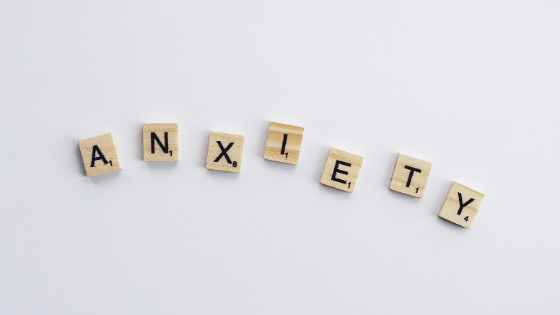Stress is something that impacts us all and it is possible that you are unaware of the effects that stress is having on your body. Today we are exploring the physical effects of stress on your body that you might be blissfully unaware of.
Physical Effects of Stress on Your Body
Stress is caused by various factors, during busy times at your work, disciplining your children, managing your finances, or dealing with a challenging relationship that is draining you physically and mentally. Some stress is advantageous and dealing with a little stress is normal. However, large amounts of stress can wear your body down and make you both physically and mentally ill.
The first step to combatting stress is knowing the symptoms. But it may sound easier than it is. Most individuals have become so used to being stressed, that they often do not realize the impact it has on their bodies until they reach breaking point.
How Your Body Reacts to Stress
Stress is how your body reacts to damaging situations, irrespective if they are tangible or perceived. When you feel vulnerable, it manifests as a chemical reaction in your body that causes you to act in a way to avoid injury. It is referred to as the stress response, or “fight or flight” reaction. During this bodily response your heart rate escalates, your muscles tighten, breathing quickens, and your blood pressure rises. It is a way of your body to protect yourself.
Stress doesn’t mean the same thing to everyone. What may cause stress in your life might not be an issue for someone else. Some handles stress a lot easier than others. And stress is not necessarily bad for everyone. Small amounts of stress is good since it triggers your body’s natural response to react to a potentially dangerous situation. For instance, slamming on your breaks before crashing into the car ahead of you.
Your body is engineered to cope with small doses of stress. However, it is not equipped for handling long-term, ongoing stress without dire consequences.
Physical Effects of Stress on Your Body
Symptoms of Stress
Stress can impact all facets of your life, including behaviors, physical health, emotions, and thinking ability. Not a single part of your body is immune to the physical effects of stress on your body. However, because not everyone deals with stress in the same way, the symptoms can vary. Here is a thorough breakdown of the symptoms that you may experience as a result of stress.
Emotional Effects of Stress on Your Body
- Becoming easily frustrated, moody, and agitated
- Feeling overwhelmed as if you are losing control
- Having issues with quieting or relaxing your mind
- Having a low self-esteem and experiencing feelings of worthlessness, loneliness, and depression
- Avoiding others
Physical Effects of Stress on Your Body
- Having low energy
- Upset stomach that includes constipation, diarrhea, or nausea
- Headaches
- Tense muscles, aches and pains throughout your body
- Fast heartbeat and chest pain
- Regular infections and colds
- No libido
- Cold or sweaty feet and hands
- Ringing in your ear
- Shaking and feeling nervous
- A dry mouth and struggling to swallow
- Grinding teeth and a clenched jaw
Cognitive Effects of Stress on Your Body
- Persistent worrying
- Battling thoughts
- Not being able to focus
- Feeling disorganised and forgetful
- Poor judgement
- Unable to see the positive side of things
Behavioral Effects of Stress on Your Body
- Fluctuations in your appetite – eating more or not enough
- Procrastinating and steering clear from responsibilities
- Increased consumption of drugs, alcohol, or cigarettes
- Exhibiting more anxious behaviors – nail biting, pacing, fidgeting, etc
Effects on Your Body due to Long-term Stress
- Mental health issues that include anxiety, personality disorders, and depression
- Eating disorders and obesity
- Cardiovascular disease that include high blood pressure, heart disease, heart attacks, irregular heart rhythms, and stroke
- Menstrual issues
- Sexual dysfunction in women and men
- Skin and hair issues like psoriasis, permanent hair loss, and acne
- Gastrointestinal issues, like gastritis,irritable colon, ulcerative colitis, and GERD
Conclusion
Stress is a natural occurrence in our everyday lives. It is unavoidable, but what makes the difference is how we deal with it. The best way to handle stress is to know your stress-related symptoms. If you or someone you care about is feeling overwhelmed or stressed, reach out and speak to someone or your doctor.

Some symptoms of stress could be a sign of an underlying health problem. Your doctor can rule out any health issues and recommend a counsellor or therapist that can help you through dealing with the stress that is negatively impacting your life.
Sending you lots of light, stress-free vibes, and love
Anthea






